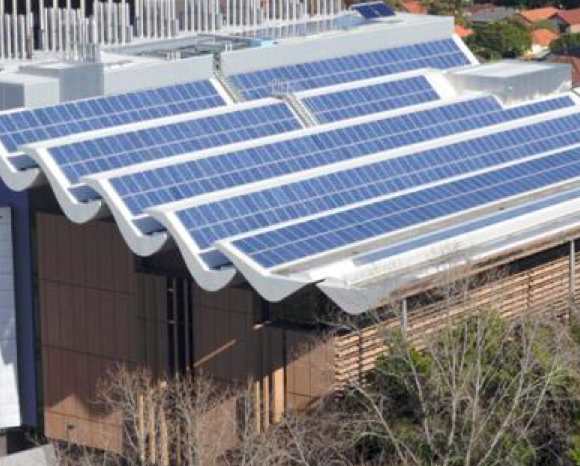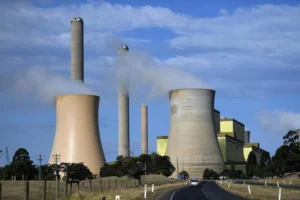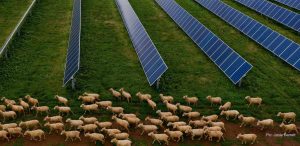NSW breaks ranks with other conservative governments, saying RET is good and should be retained. But it suggests changes, including delaying large scale component and reducing incentives for rooftop solar.
 The NSW government has broken ranks with other conservative governments in Canberra and other states, saying that Australia’s renewable energy target is essential to retaining investment and jobs, and is helping avoid a consumer bill crunch from soaring gas prices, as well as easing the transition to low-carbon generation.
The NSW government has broken ranks with other conservative governments in Canberra and other states, saying that Australia’s renewable energy target is essential to retaining investment and jobs, and is helping avoid a consumer bill crunch from soaring gas prices, as well as easing the transition to low-carbon generation.
However, while NSW has refused to side with the extreme calls to kill the RET altogether, it also recommends significant changes to the legislation, including that the large-scale component should be delayed to an unspecified date to reflect a “true” 20 per cent target, and it also recommends a reduction in the clearing house price for certificates for rooftop solar.
The NSW submission to the RET Review panel says dropping the RET completely, as many industry lobbyists and conservative politicians, and even the NSW Independent Pricing and Regulatory Tribunal want to do, would create sovereign risk issues and open the government to challenges for compensation.
NSW argues that the RET is needed to “provide a buffer” against rising gas prices – noting that renewable generation could become competitive with even baseload gas over the medium to long-term, without incentives.
It says the RET is clearly making a “significant” contribution to reducing emissions from the electricity sector, and it could help in an “orderly transition” as older generation is retired in coming years.
And, it notes, the impact of the RET on consumer bills is offset by a reduction in wholesale prices caused by the influx of renewables.
Despite all that, NSW says the target is on track to exceed the 20 per cent target by 2020, and suggests that the timeframe to meet the legislated fixed target of 41,000GWh be extended “until it is consistent with a true 20 per cent level.”
It doesn’t say what year that might be (on some assumptions it could be 2025 or beyond), but it essentially puts it into the same camp as most of the coal generators who want the target diluted.
NSW noted that there were 8,395 megawatts of renewable energy projects (worth an estimated $13 billion,progressing through the NSW planning system. It said these might be impacted by changes to the LRET. Most of these projects, however, are for wind energy, which would likely not be built anyway in a “delayed” 41,000GWh target because – as Bloomberg New Energy Finance has suggested – large-scale solar PV will fall in costs and displace many of these projects.
NSW also warns against closing or capping the SRES (small scale scheme) especially if this is done abruptly as it could lead to a “rush by consumers, and result in a boom followed by a bust.” NSW is well experienced with such boom/bust scenarios, given its track record on feed in tariffs.
It noted that REC Agents Association had estimated that the payback period for a typical solar PV system would slip from around 6-7 years to around 8-9 years without the small- scale technology certificates (STCs). This would reduce the value proposition for small-scale solar.
NSW suggested that the current clearing house price of $40 for the STCs was likely too high given the falling costs of rooftop solar. Lowering the price cap would reduce the cost of the SRES scheme on consumers (retailers in NSW, although not the ACT, have been allowed to pass on the $40 cost to consumers, even when the certificates were trading at a substantial discount).
NSW says this could be done virtually immediately, as it is within the minister’s powers.
It, does, however, support the upfront incentive, as it provides an “important assistance” to help households and small businesses overcome capital investment barriers.
“Removal of deeming would increase the relative transaction costs for the service providers of households and small businesses and mean that these small end users have no access to the incentives provided by the RET,” it noted.
On this point then, the NSW government is in disagreement with the big fossil fuel generators, which are pushing for all incentives for household solar to be removed because they fear growth in rooftop solar will eat into generator revenues and profits.







